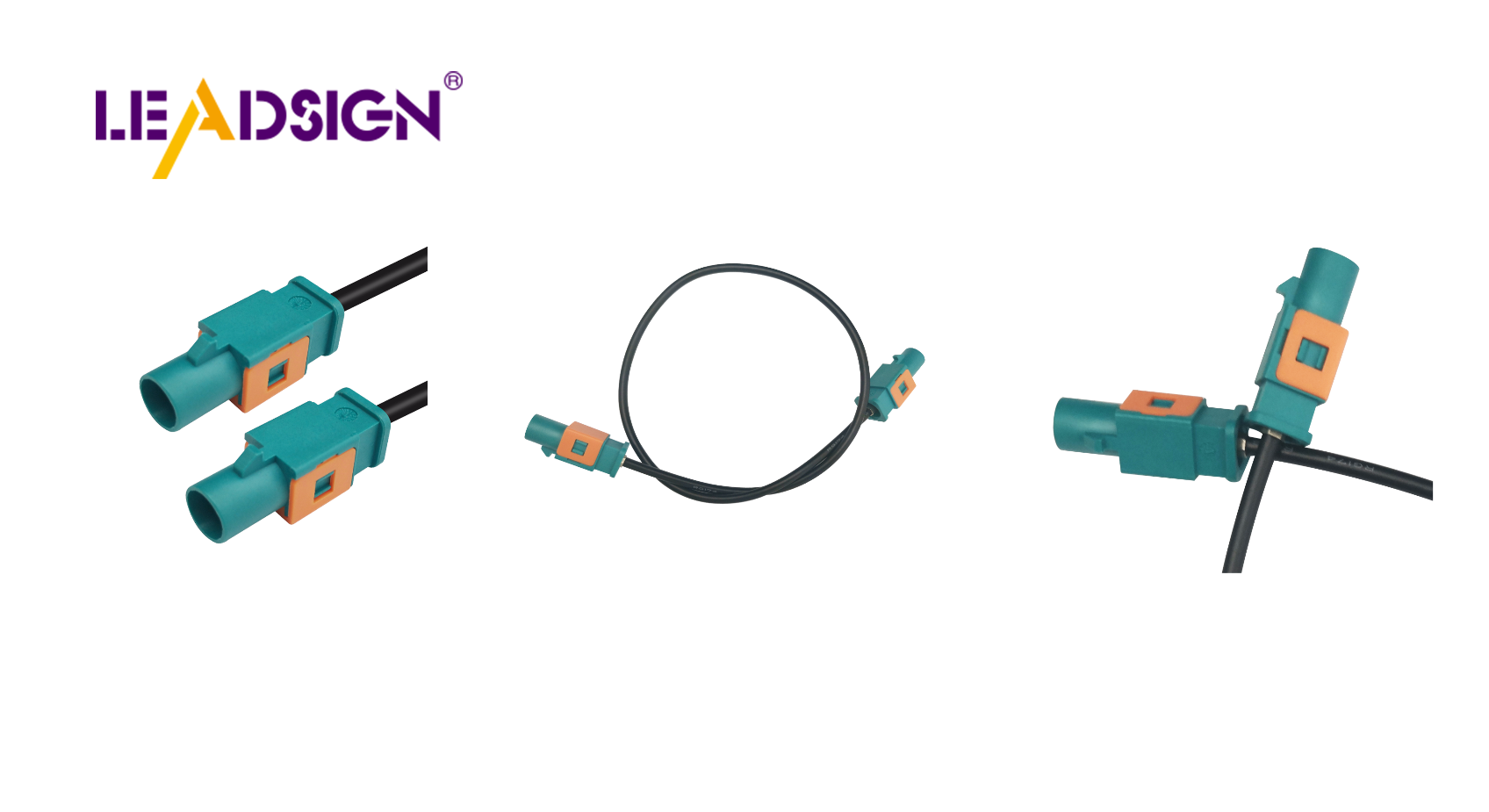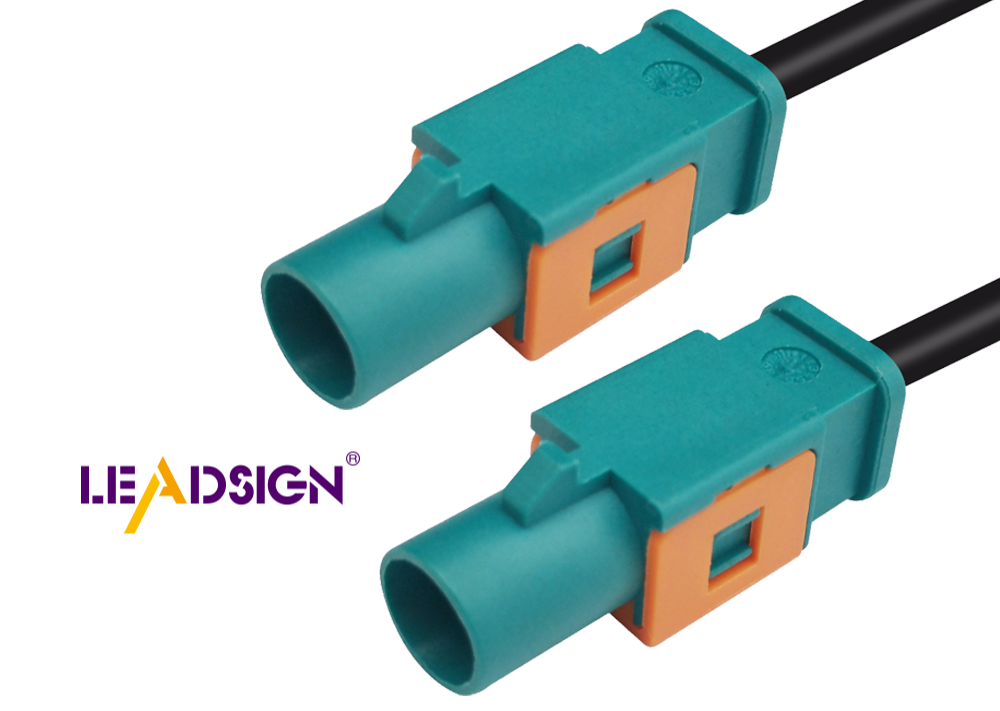Understanding Car Wire Connector Types for Accurate Identification

Understanding different types of automotive electrical connectors is crucial for repairing car electronics. These connectors play a vital role in transmitting electrical signals, ensuring optimal functionality of your vehicle. However, identifying the specific automotive electrical connectors types can be challenging due to the variety available. Selecting an incorrect type may result in poor signal transmission and potential damage to components. This guide assists in identifying the appropriate connectors, leading to cost savings and preventing issues related to corrosion or deterioration.
Overview of Automotive Electrical Connectors Types

Knowing different car wire connectors is important for fixing car electronics. These connectors help send electrical signals properly, keeping your car's systems working well. Let's look at some common and special types of connectors used in cars.
Common Automotive Electrical Connectors Types
Blade Connectors
Blade connectors are very common in cars. They are used where quick and secure connections are needed. They have a flat metal piece that fits into a slot. This makes them easy to insert and remove, perfect for when you need to disconnect often.
Bullet Connectors
Bullet connectors are also popular in cars. They look like bullets because they are round. They fit tightly into sockets, making a strong connection. You can use bullet connectors in lights and audio systems because they are easy to use.
Butt Connectors
Butt connectors join two wires together. They are round and need crimping to hold wires tight. Use butt connectors when you need to fix or extend wiring. They are simple and work well for car electrical tasks.
Specialized Automotive Electrical Connectors Types
Weatherproof Connectors
Weatherproof connectors handle tough conditions outside or under the hood. Weather Pack connectors resist chemicals and moisture, great for engine parts.
Quick Disconnects
Quick disconnects make it easy to separate connections fast. These are good for places where you connect and disconnect parts often.
Multi-pin Connectors
Multi-pin connectors connect many wires at once. Deutsch connectors last long and resist weather, good for heavy-duty uses like fuel injectors.
By learning about these connector types, you pick the right one for your needs. This helps avoid problems with bad connections.
Features and Uses of Each Connector Type
Knowing about different car wire connectors helps you fix car electronics. Let's look at blade, bullet, and butt connectors.
Blade Connectors
Features
Blade connectors have a flat metal piece. It fits into a slot easily. This makes them quick to connect and disconnect. They are simple and reliable for car use.
Common Uses
Blade connectors are in fuse boxes and wiring harnesses. They connect parts like headlights that need regular checks or changes.
Bullet Connectors
Features
Bullet connectors have two parts that fit together tightly. This stops them from coming apart with movement. Their round shape helps in tight spaces.
Common Uses
Bullet connectors are used in lights and audio systems. They keep connections strong for things like speakers, so sound stays good.
Butt Connectors
Features
Butt connectors join two wires in a straight line. You crimp them to hold wires tight. They are important for fixing or adding wires in cars.
Common Uses
Use butt connectors when fixing or extending wires in cars. They work well where soldering is hard to do, like fixing broken wires.
By knowing these features and uses, you pick the right connector type for your needs. This stops bad connections and keeps your car's electrical parts working well.
Weatherproof Connectors
Weatherproof connectors are special because they handle tough conditions. They are important where there's moisture, dirt, or heat.
Features
Durability: These connectors keep out water, dust, and chemicals. This makes them great for hard places.
Sealing Mechanism: They have rubber seals to stop water from getting in.
Robust Construction: Made strong, they resist shaking and stress.
Common Applications
Engine Components: Found in engines where oil and heat are present.
Exterior Lighting: Used in headlights to block rain and dirt.
Off-road Vehicles: In muddy areas, these connectors work well.
Quick Disconnects
Quick disconnects help you separate parts fast. They are very useful in cars.
Features
Ease of Use: You can connect or disconnect quickly without tools.
Secure Fit: They stay connected firmly but come apart easily when needed.
Versatility: Come in different sizes for various car needs.
Common Applications
Battery Connections: Used on batteries for quick changes.
Audio Systems: Help swap audio parts easily.
Maintenance Tasks: Good for parts needing frequent checks.
Multi-pin Connectors
Multi-pin connectors link many wires at once. They are key in modern cars.
Features
High Pin Count: Hold lots of pins for many connections together.
Compact Design: Small size saves space in car wiring.
Reliable Connection: Stay connected even if the car shakes a lot.
Common Applications
Engine Control Units (ECUs): Needed for ECUs with lots of data lines.
Infotainment Systems: Manage complex audio and video wires.
Safety Systems: Ensure airbags and safety features work well.
Knowing these connector types helps pick the right one. This keeps your car's electrical parts working smoothly.
Tips for Finding the Right Connectors
Finding the right car wire connectors is important. It helps keep your car's electrical system working well. Here are some easy tips to help you find these connectors.
Looking at Connectors
Looking closely at connectors is a key step. By checking them, you learn about their shape and what they’re made of.
Spotting Connector Shapes
Car wire connectors have different shapes. Blade connectors are flat and fit into slots. Bullet connectors are round and fit snugly in sockets. Weatherproof ones are strong and sealed to handle tough weather. Knowing these shapes helps you know which connector it is.
Noticing Material Types
The material tells you about the connector type too. Some, like Weather Pack, resist water and chemicals, good for outside use. Bullet ones use metal and plastic for tight fits. Knowing this helps pick the right one for certain jobs.
Using Tools to Help
Besides looking, tools can help identify car wire connectors better.
Multimeters
A multimeter checks if connections work well by measuring electricity flow. This ensures that signals pass through correctly, keeping your car running smoothly.
Guides for Connectors
Connector guides show pictures and details of different types. They help match with those in your car easily so you don’t mix them up.
By using these tips, you can find the right car wire connectors easily. This keeps your car’s electrical parts working great and avoids future problems.
Knowing car wire connectors is key to keeping your car's electrical parts working well. You have learned about different connectors like blade, bullet, and weatherproof types, and where they are used. Correctly identifying them helps your car work better and saves money on repairs.
"You can check socket and pin thickness with DPA," showing why knowing the right connector is important for cars.
Practice using these methods to get better at it. Use tools like multimeters and guides to help you find the right connectors. This way, your car's electrical parts will work properly.
See Also
Exploring HSD Connectors in Automotive Technology
Navigating Ford Fakra Connectors
In-Depth Look at Fakra Connectors: Fundamentals, Varieties, and Uses

